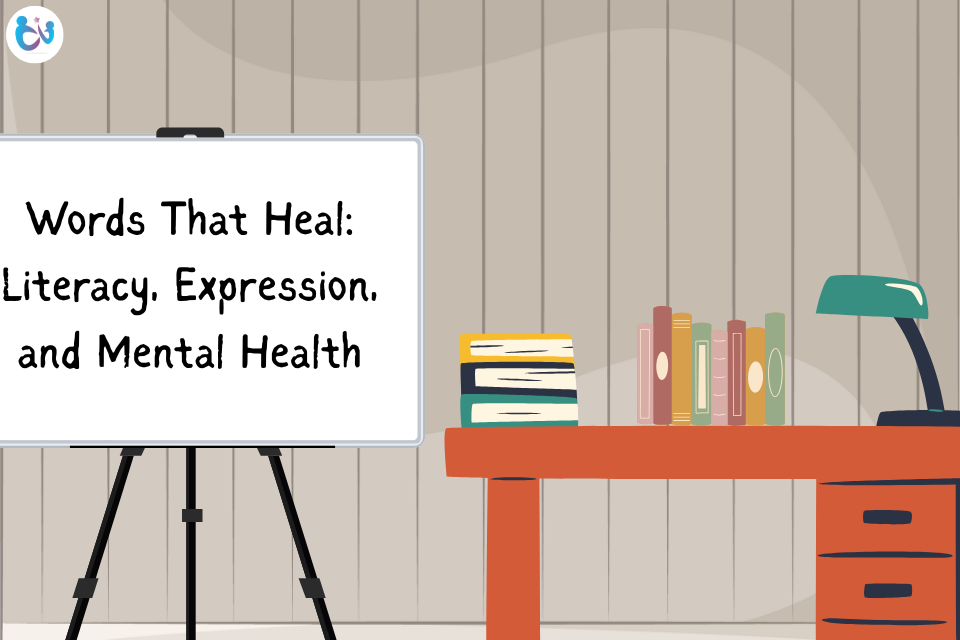Words That Heal: Literacy, Expression, and Mental Health
September 8, 2025

Every year on 8 September, the world observes International Literacy Day, a reminder that the ability to read and write is not a privilege but a basic human right. The World Health Organization (WHO) and UNESCO emphasize that literacy is more than academic achievement — it is a pathway to dignity, empowerment, and health. At Emotiontal Assessment and Therapy Centre, we extend this understanding further: literacy is also a foundation for emotional healing.
When people cannot find words for their experiences, their pain remains invisible. When people gain language — whether through reading, writing, or speaking — they gain tools to express themselves, connect with others, and take steps toward wellness.
Literacy as Empowerment for Mental Health
Literacy is often thought of only in terms of education or employment, but it is equally vital to emotional well-being. Being literate allows individuals to:
- Access information: From health resources to self-help strategies, literacy opens doors to knowledge that can prevent or reduce suffering.
- Express emotions: Journals, letters, poems, or even text messages can become safe outlets for fear, grief, and hope.
- Seek help effectively: People with literacy skills can navigate systems, complete forms, and understand treatment options, which reduces barriers to care.
- Challenge stigma: Written and spoken stories about mental health create awareness and dismantle shame in communities.
Without literacy, individuals may remain trapped in silence, unable to advocate for themselves or find support.
The Link Between Words and Suicide Prevention
Later this week, on 10 September, the world will mark World Suicide Prevention Day. The timing of these two days — Literacy Day and Suicide Prevention Day — is a powerful reminder that words can save lives.
WHO’s suicide prevention strategy highlights the importance of open communication, safe dialogue, and reducing stigma. Many people experiencing suicidal thoughts feel isolated because they cannot or do not know how to express their pain. Equally, loved ones often feel helpless because they lack the language to respond.
When we teach people the language of emotional literacy — words to describe sadness, anxiety, despair, or hope — we give them lifelines. Having the courage and vocabulary to say “I am not okay” can be the first step toward safety and healing. Similarly, simple responses like “I am here for you” or “You are not alone” can shift the course of someone’s darkest moment.
Emotional Literacy and the Heart Connection
This September is also Heart Awareness Month, drawing attention to heart health in South Africa and globally. The relationship between words and heart health may not be immediately obvious, yet science confirms that unspoken emotions strain the body.
Stress from suppressed feelings elevates blood pressure, raises heart rate, and contributes to cardiovascular disease. Conversely, expressing emotions in healthy ways — whether through writing, conversation, or prayer — reduces tension and supports heart function. Words not only heal the mind but also protect the body.
Building a Culture of Healing Words
At Emotiontal, we believe every community can foster a culture where words become instruments of healing. Here are practical steps:
- Encourage journaling. Writing down emotions helps people process experiences and gain perspective.
- Normalize conversations about mental health. Talking openly about struggles reduces stigma and invites others to share.
- Teach emotional vocabulary. Especially in schools and families, giving children words for their feelings nurtures resilience.
- Promote storytelling. Narratives of recovery inspire others and break cycles of silence.
- Model compassionate language. Words of encouragement, rather than criticism, help people feel seen and valued.
By cultivating emotional literacy, we strengthen not only individuals but also families and communities.
International Literacy Day is a call to ensure that no one is left voiceless. Literacy is more than a skill — it is a lifeline. When paired with emotional literacy, it becomes a powerful tool for healing minds, protecting hearts, and even preventing tragedy.
As we reflect on this day, let us remember: every word written, every story told, and every conversation held has the potential to bring light into darkness.
At Emotiontal Assessment and Therapy Centre, we stand for a world where words heal, where silence is broken, and where every person has the chance to be heard.
If you are struggling to find the words for your own story, we are here to listen.
Awareness is the first breath of healing.
